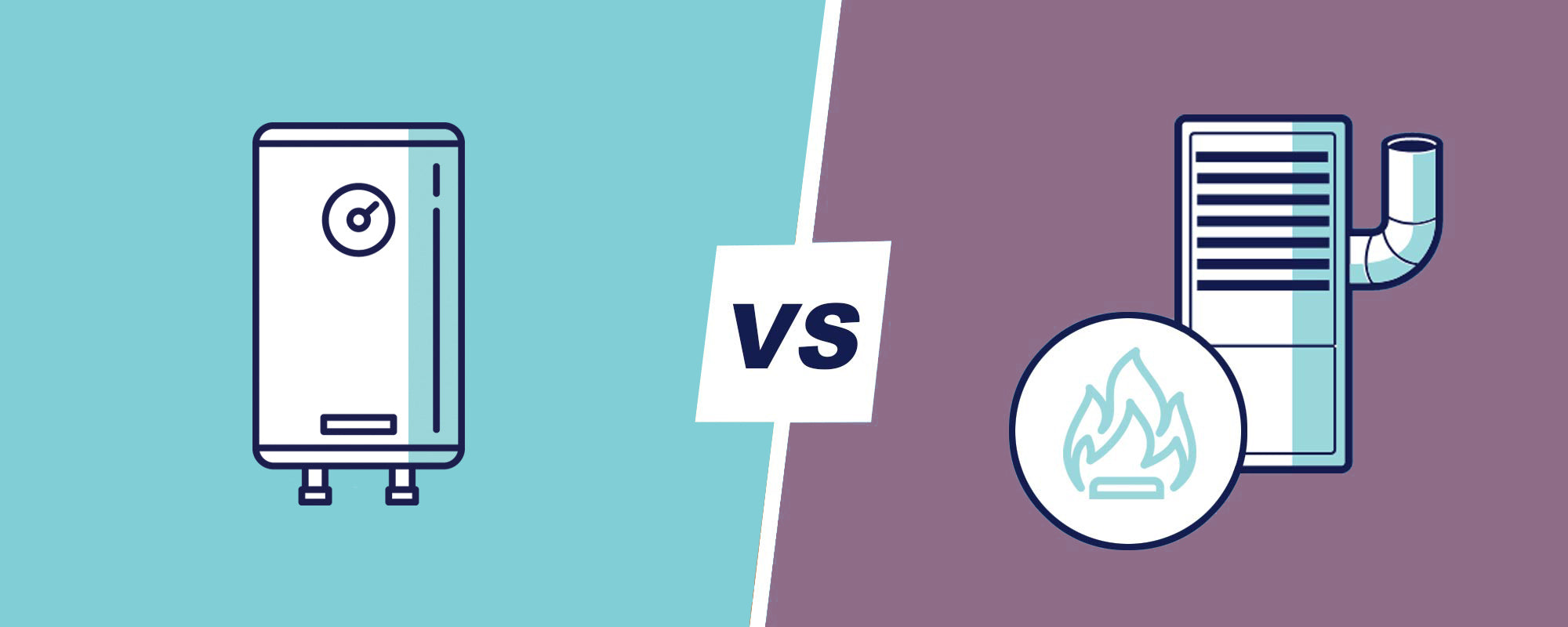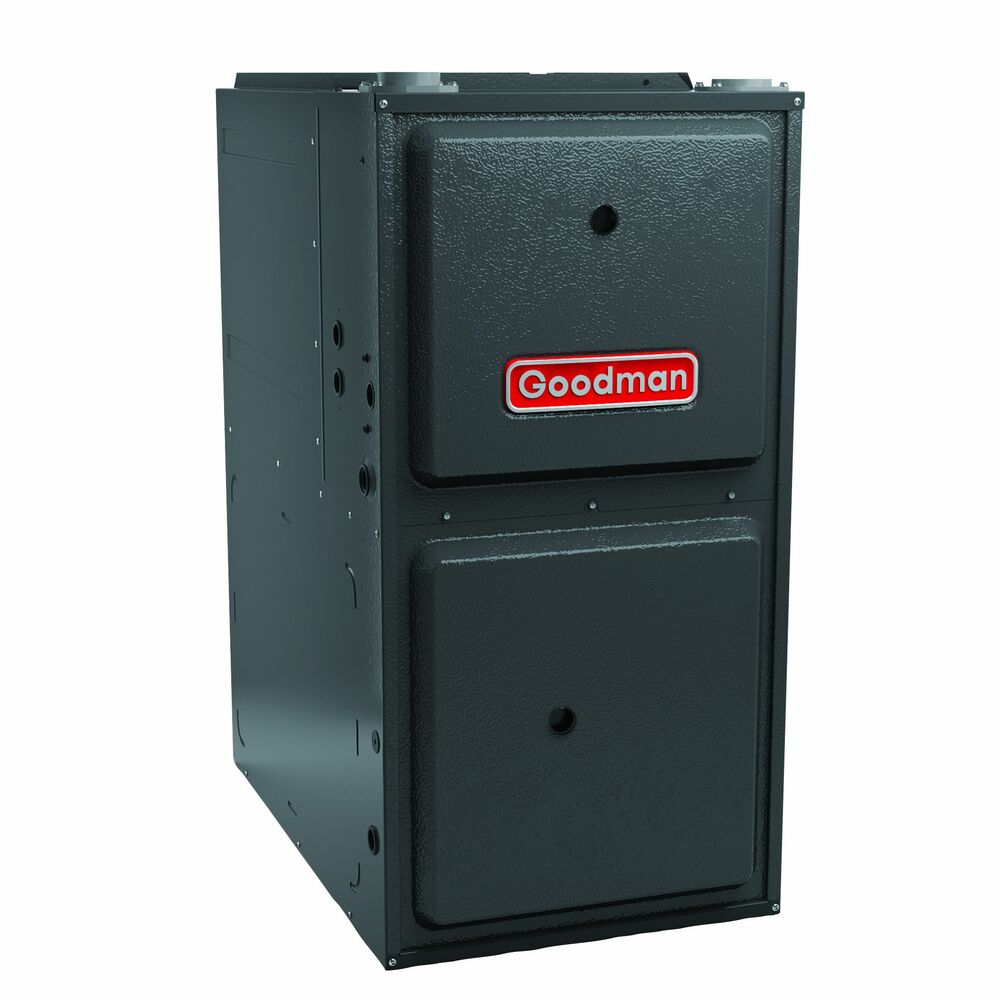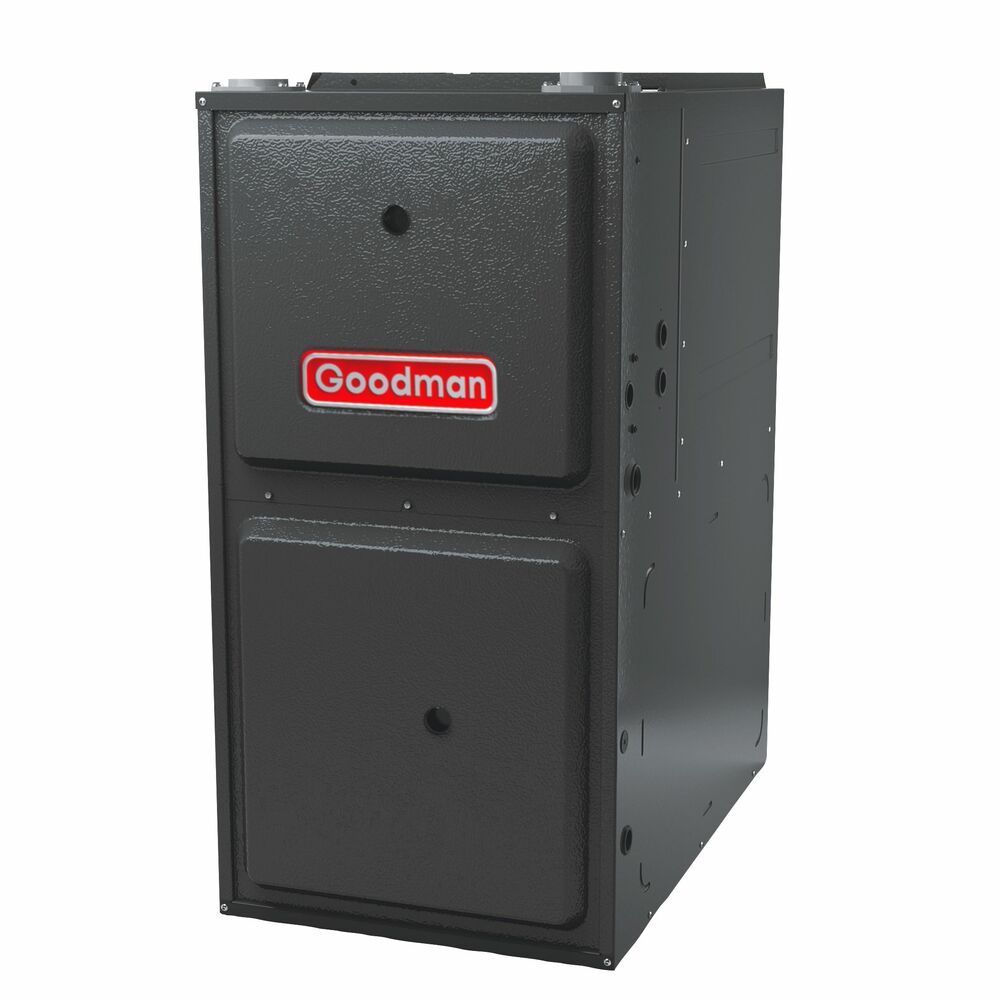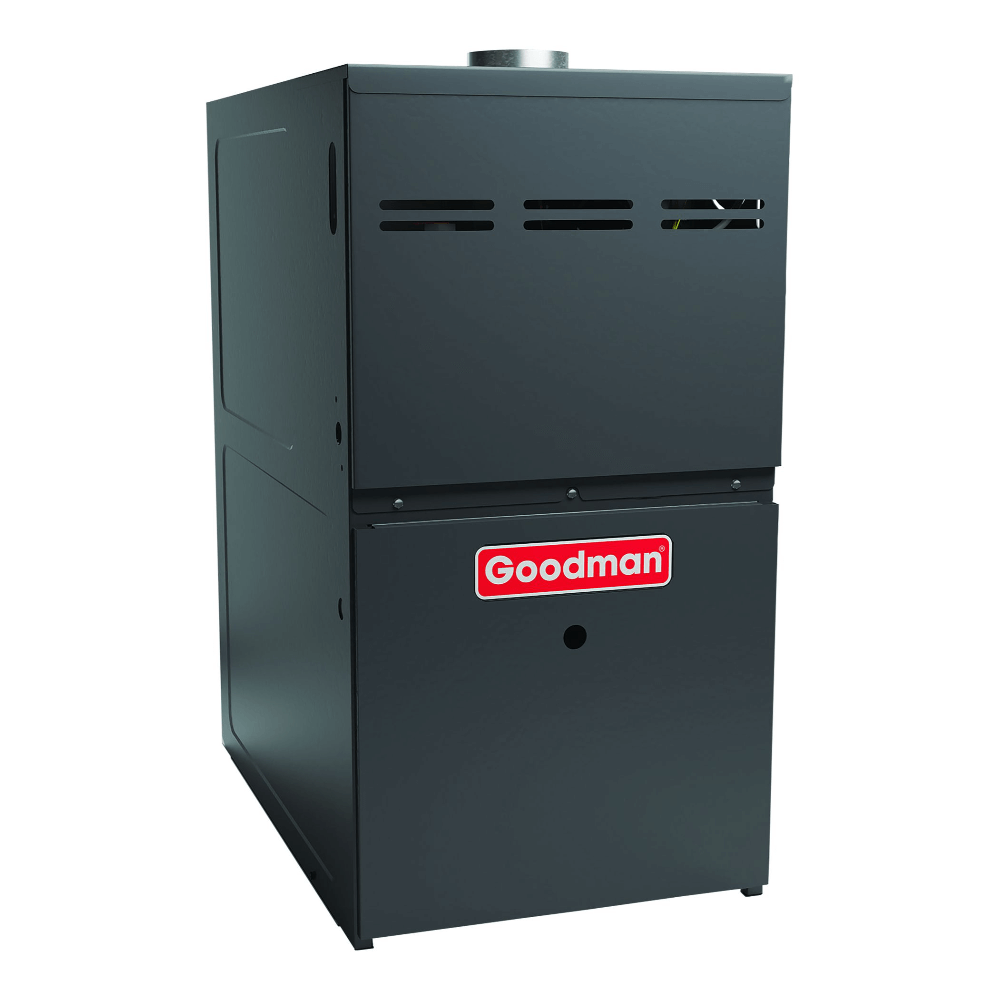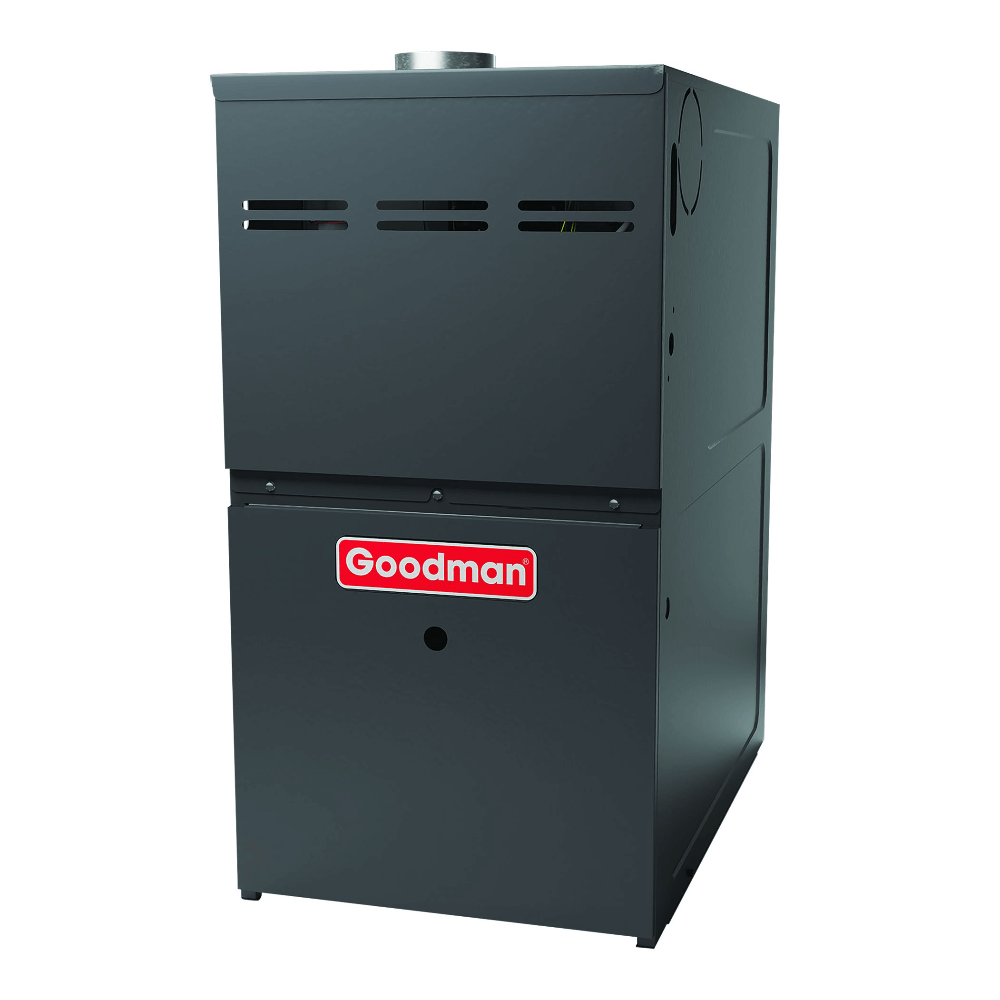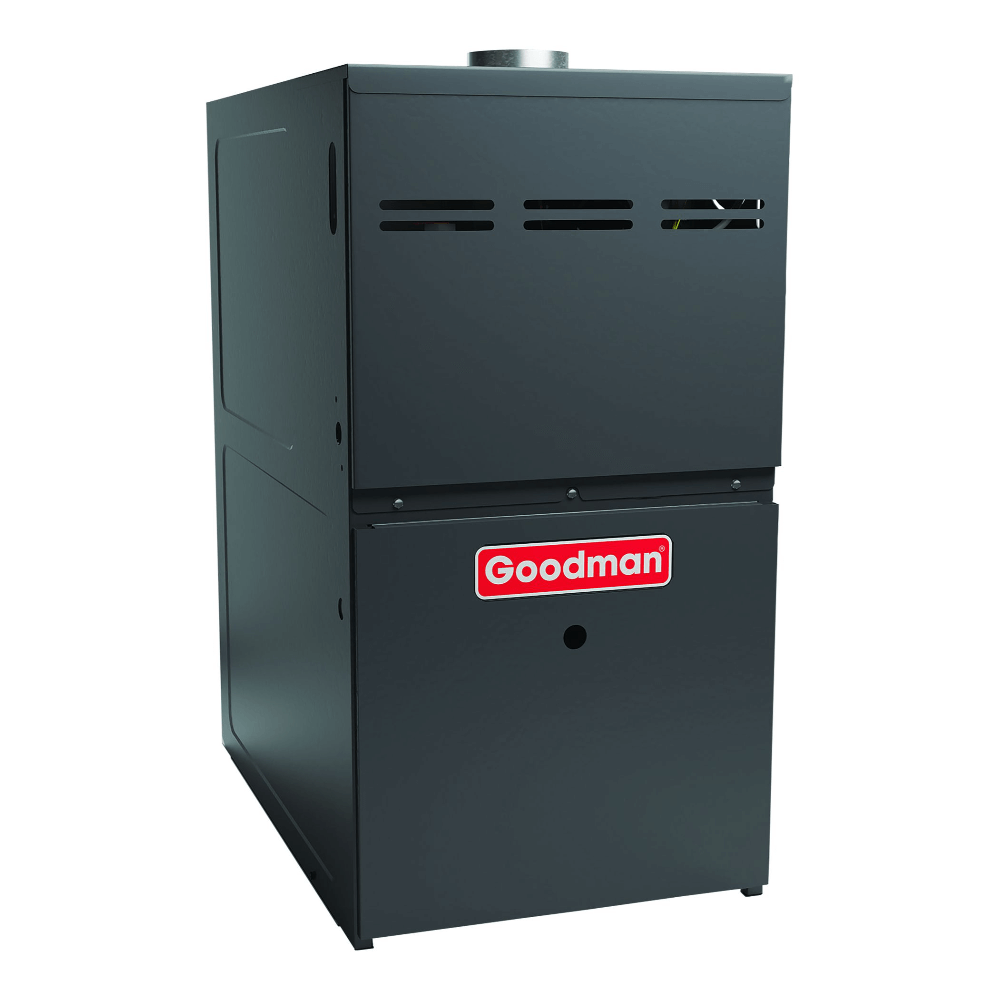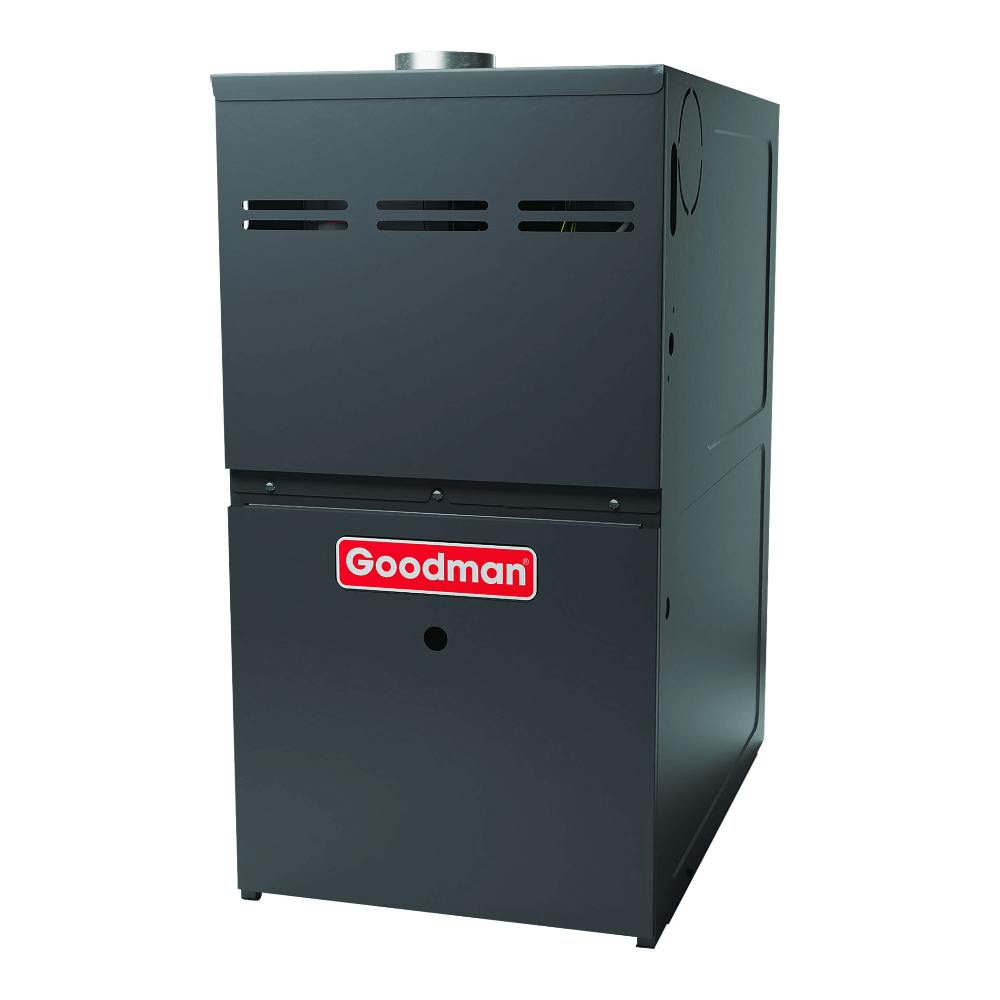Are there advantages to installing a boiler vs furnace in your home? Boilers and furnaces are the most common methods of heating homes in the U.S. Boiler systems use radiators, baseboard heaters, or radiant flooring to deliver heat. Furnaces circulate warm air through ductwork and vents. Several types of furnaces can be installed in forced-air systems. Similarly, various types of boilers can be used with hydronic heating systems.
When choosing a heating system for your home, there are many considerations, including upfront costs, installation and maintenance requirements, lifespans, and energy efficiency. According to Energy.gov, home heating systems consume a significant amount of energy and account for approximately 29% of household energy costs. This guide breaks down the differences between boilers and furnaces to determine which is suitable for your home.
Boiler
Unit Cost: $3,663 - $8,281
Average Installation Costs: $1,000 - $2,500
Fuel Source:
- Natural gas
- Oil
- Electricity
- Wood pellets
Life Expectancy: 10 - 30 years
Pros:
- Higher unit and installation costs
- Heat is more comfortable
- Less noise
- More energy efficient
- Longer lifespan
- Better air quality inside the home
- No ductwork required
- Heated water can be reused
Cons:
- More expensive to install
- Takes up more space
- Pipes may freeze in extreme temperatures
- Damage from leaks can be extensive
Furnace
Unit Cost: $2,000 - $5,400
Average Installation Costs: $600 - $3,100
Fuel Source:
- Natural gas
- Propane
- Oil
- Electricity
Life Expectancy: 15 - 20 years
Pros:
- Lower unit and installation costs
- Easier installation
- Warms the home up faster
- Not a freezing hazard
- Takes up less space
Cons:
- Requires ductwork
- Noiser operation
- Poorer air quality
-
Can dry out the air
What Is a Boiler?
A boiler boils water to create hot water or steam, circulating through pipes to radiators, baseboard heaters, radiant floor systems, or a heating coil in a furnace. The heat from the water or steam radiates or transfers to objects and ambient air in the home.

Find the Ideal Furnace for Your Home: View Our Products
What Is a Furnace?
Most people have a basic understanding of what a furnace is. A furnace burns fuel or warms electric elements to generate heat, which is transferred to the air inside the furnace and distributed to the house through a system of ducts. Gas furnaces and electric furnaces are the most popular.
Boiler vs Furnace
Boilers and furnaces provide homes with heat but differ in many aspects.
Size and Appearance
Older boilers are tall and cylindrical. Newer boilers are rectangular. Boilers are larger than furnaces and have an “industrial” appearance due to the pipes branching out of them. Furnaces are rectangular metal cabinets that can fit into tighter spaces than boilers.
Cost
Home Advisor states boilers cost between $3,663 and $8,281, or an average of $5,812. Home Guide reports that furnaces cost between $2,000 and $5,400, or an average of $3,700.
Installation
Boilers and furnaces involve electrical and gas line connections and should be professionally installed. In some cases, ductwork and pipe installation involve the removal of walls and floors. However, furnace installation typically takes less time than boiler installation–a few hours versus several days.
Energy Efficiency and Performance
Boilers are more energy efficient than furnaces, use less fuel, and produce lower energy bills.
| Fuel Type | Boiler Efficiency | Furnace Efficiency |
|
Natural Gas |
90% - 97% |
91.2% - 99% |
|
Propane |
90% - 97% |
91.2% - 99% |
|
Oil |
87% - 91% |
85% - 96.7% |
|
Electric |
99% - 100% |
99% - 100% |
|
Wood |
40% - 90% |
40% - 90% |
Maintenance
Furnaces require more maintenance and are more likely to break down than boilers. Furnace maintenance consists of filter changes every 30 to 90 days and professional cleanings, inspections, and tune-ups one to two times a year.
Boilers don’t require regular maintenance for homeowners and have few moving parts to break. Professional inspections and tune-ups once a year are recommended.
Lifespan
How long HVAC systems last generally comes down to the system’s type and how well it’s maintained. A boiler can last anywhere from 10 to 30 years. Furnaces last 15 to 20 years on average but can last longer.
Furnace vs Boiler: Which is Better?
Generally, replacing your heater with the same type is more straightforward and cost-effective. Switching from a furnace to a boiler or a boiler to a furnace would involve significant renovations. Despite that, some circumstances favor a furnace vs boiler and vice versa.
Best Furnace for Homes on Budget: Furnaces
Furnaces are best for households on budgets because there are lower upfront costs. The average furnace costs $3,700, while the average boiler costs $5,812. That’s a difference of 64%.
Best for Energy Efficiency: Boilers
Boilers are more energy efficient than furnaces. Energy-efficient appliances consume less fuel and yield lower energy bills. Only high-efficiency heat pumps are more efficient than boiler systems.

Find the Ideal Furnace for Your Home: View Our Products
Best for Cold Climates: Furnaces
Boilers are better at maintaining consistent temperatures in homes, but the water pipes can freeze and burst if the power goes out during wintry weather. A furnace won’t operate during a power outage, but there is no freezing risk. Moreover, furnaces heat up instantly and warm houses faster than boilers. It takes time for boilers to boil water and pump it to every part of the house.
Best for Smaller Homes: Furnaces
Furnaces are better for smaller homes. Furnaces are smaller than boilers and can fit into tighter spaces like utility closets.
Frequently Asked Questions
Is a boiler cheaper to run than a furnace?
Boilers are cheaper to run than furnaces because boilers are more energy efficient. Energy-efficient appliances use less fuel and yield lower energy bills.
Is a boiler or furnace more efficient?
Boilers are more energy efficient than furnaces because boilers use less fuel to generate heat than furnaces.
Is a boiler HVAC or plumbing?
Despite their use of pipes and water, boilers are considered HVAC system components because they are designed to heat homes.
Do boilers last longer than furnaces?
Boilers can last longer than furnaces if they are well-maintained. Boilers last 10 to 30 years, while furnaces last 15 to 20 years. Furnaces can also last longer if they are well-maintained.
Are boilers and furnaces the same thing?
Boilers and furnaces are different appliances. While boilers and furnaces heat homes, they function differently and use other systems.
A boiler heats water and pumps it through pipe systems to provide radiant heating. A furnace burns fuel or warms electric heating elements to generate heat. The heat transfers to the air inside the furnace, and a duct system distributes heated air throughout the house.

